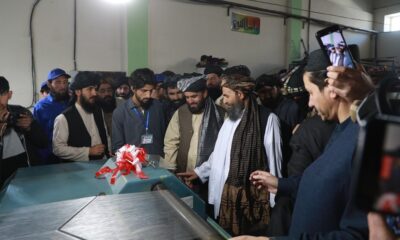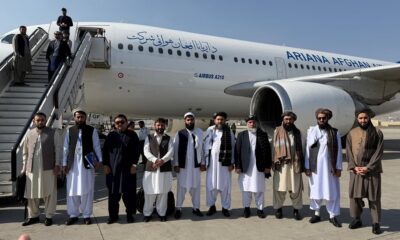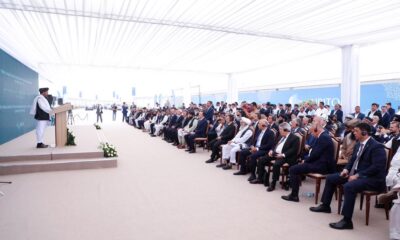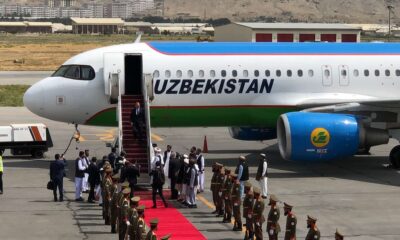Business
MAIL to grow fig gardens on 3250 hectares of land
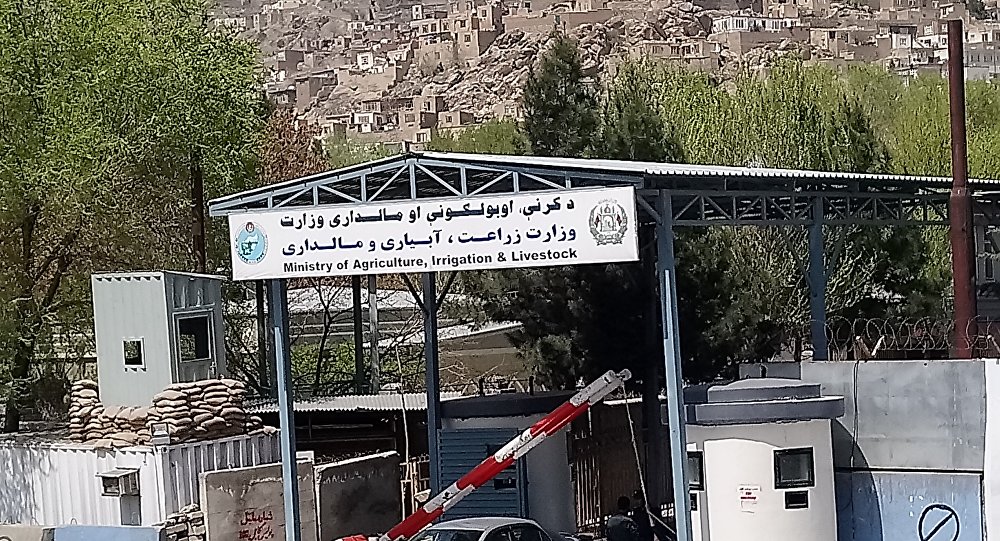
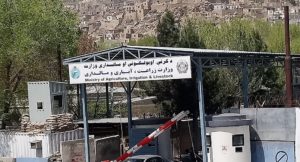 The Ministry of Agriculture, Irrigation and Livestock is planning to make fig gardens on some 3250 hectares of land.
The Ministry of Agriculture, Irrigation and Livestock is planning to make fig gardens on some 3250 hectares of land.
The MAIL says that in the next 5 years, it will have grown fig gardens on about 3250 hectares of land in Afghanistan.
Officials of the MAIL say that the plan to make the gardens, which is of national interest, has been approved by the president, adding that in the future five years, $60 million will be invested in the making of the gardens.
They have noted that the project will be followed by establishments of dozens of fig processing plants, adding that tens of hundreds of people will be employed in and post the process.
Akbar Rustami, the spokesperson of the MAIL, clarifies that most of these gardens will be sketched in Herat, Balkh and Kandahar provinces.
Afghanistan enjoys high potentiality in regards to the growth and production of figs; therefore, we have come up with this business plan, he added.
Economic experts also welcome the plan saying that the ministry of agriculture, irrigation, and livestock should further invest in such ideas that have a market out there.
Hakimullah Sediqi, an economic expert, says, “The ministry of agriculture should invest in objects, such as figs, that have a market in the region and the world.”
Officials of the MAIL say that Afghanistan yearly exports 25000 metric tons of goods, which, with the making of the new gardens, will rise to 40 metric tons.
Business
Work on TAPI project finally kicks off in Afghanistan
Mujahid added that a large number of people are working in different sections of this project and its first phase will be completed in the next two years.
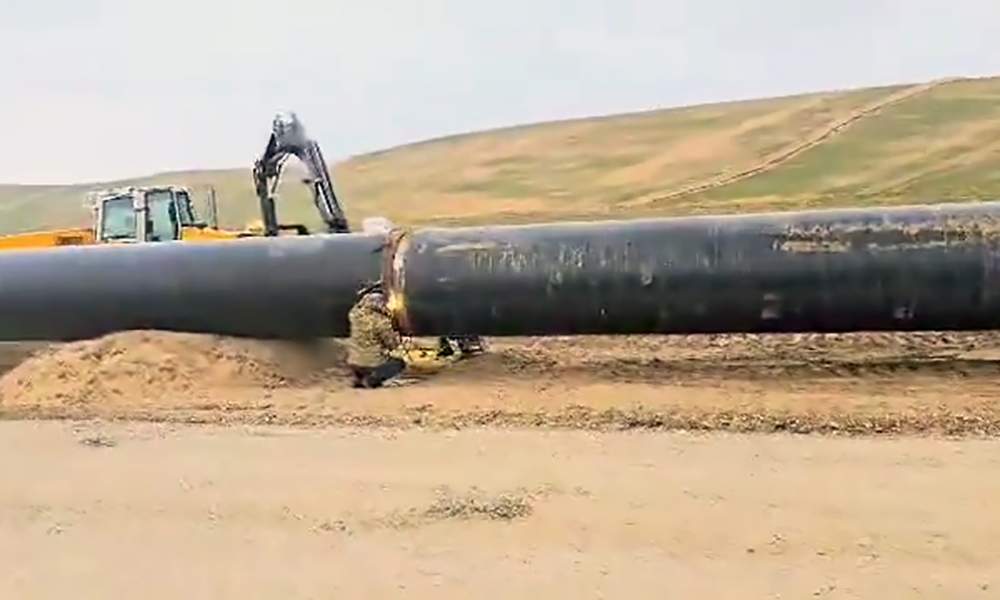
The Islamic Emirate of Afghanistan’s (IEA) spokesman says practical work on the Afghanistan section of the Turkmenistan-Afghanistan-Pakistan-India (TAPI) project has started.
Zabihullah Mujahid told Ariana News that technical equipment needed to implement the project was transferred to the border area between Afghanistan and Turkmenistan and that practical work has started.
Mujahid added that a large number of people are working in different sections of this project and its first phase will be completed in the next two years.
According to Mujahid, practical work on the CASA-1000 project and other projects will also start soon.
The spokesman of the Islamic Emirate said that Afghanistan will slowly strengthen and good job opportunities will be provided for the country's citizens.
Economic experts also believe that this project will play a vital role in the growth of the region's economy.
According to TAPI project officials, once completed, 12,000 people in Afghanistan will have job opportunities, and Afghanistan's annual income from this project will be close to one billion dollars.
The TAPI pipeline is 1,821 kilometers long and has an annual transport capacity of 33 billion cubic meters of natural gas, making it one of the largest regional infrastructure projects.
Business
Trump warns BRICS nations against replacing US dollar
“They can go find another ‘sucker’. There is no chance that the BRICS will replace the U.S. Dollar in International Trade, and any Country that tries should wave goodbye to America.”

U.S. President-elect Donald Trump on Saturday demanded that BRICS member countries commit to not creating a new currency or supporting another currency that would replace the United States dollar or face 100% tariffs, Reuters reported.
"We require a commitment from these Countries that they will neither create a new BRICS Currency, nor back any other Currency to replace the mighty U.S. Dollar or, they will face 100% Tariffs, and should expect to say goodbye to selling into the wonderful U.S. Economy," Trump wrote on his social media platform, Truth Social.
"They can go find another 'sucker'. There is no chance that the BRICS will replace the U.S. Dollar in International Trade, and any Country that tries should wave goodbye to America."
The BRICS countries - which now include Egypt, Iran, and UAE as well - discussed boosting non-dollar transactions and strengthening local currencies at a summit held in Russia's Kazan in October, read the report.
A joint declaration for the "strengthening of correspondent banking networks within BRICS and enabling settlements in local currencies in line with BRICS Cross-Border Payments Initiative" was secured at the summit in October.
However, Russia's President Vladimir Putin indicated at the summit's end that no alternatives have been made so far to compete with the Belgium-based SWIFT financial messaging system.
Business
Mullah Baradar inaugurates a blanket factory in Kabul
About 930 million Afghanis have been invested in the factory and it currently has the capacity to produce 1000 blankets per day.
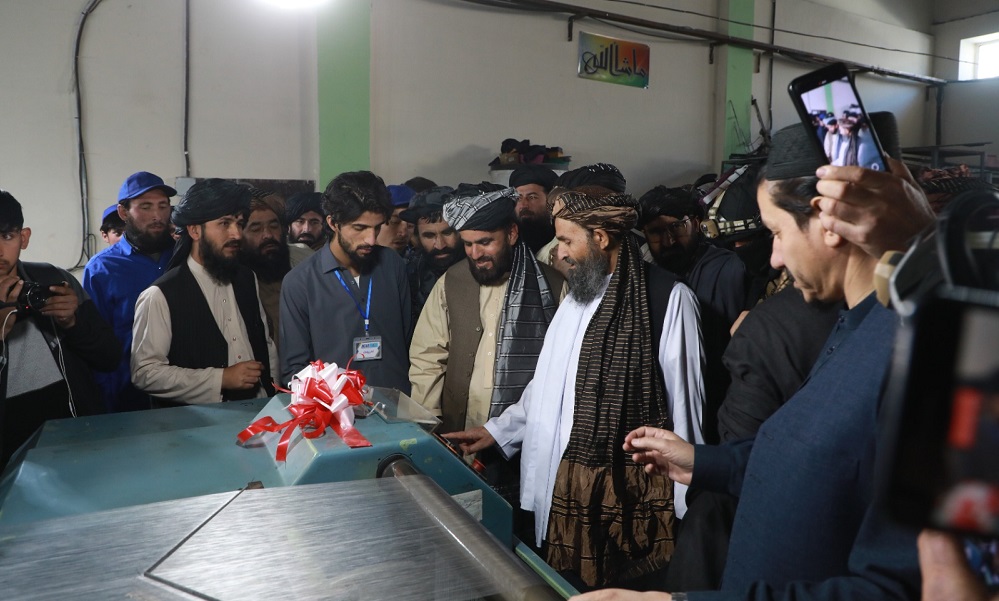
Mullah Abdul Ghani Baradar, the economic deputy prime minister, on Sunday inaugurated a blanket factory in Pul-e-Charkhi industrial area in Kabul city.
Speaking at the inauguration ceremony, Baradar said that with the provision of overall security in the country and the reduction of corruption, a favorable environment for medium and small investments has been created.
He added that the Islamic Emirate continues to support domestic industries by implementing effective import substitution policies, which plays an important role in strengthening the country's national economy.
Baradar stated that in order to support domestic industries, heavy-duty machines worth 100 million afghanis ($1.4 million) were purchased for the newly established blanket factory based on the Islamic Murabaha Islamic financing structure.
Murabaha is a sales contract where the buyer and seller agree on the markup or "cost-plus" price for the item being sold.
Baradar also mentioned that the Islamic Emirate seeks to reduce dependence on foreign imports by increasing the level of investment.
He called businessmen and investors to invest inside Afghanistan for the economic growth of the country.
According to Baradar’s office, the newly established blanket factory uses domestically sourced raw materials including wool and cotton, which will help increase job opportunities in addition to strengthening the livestock and agriculture sector.
About 930 million afghanis has been invested in the factory and it currently has the capacity to produce 1,000 blankets per day.
The factory has employed about 900 people.
-
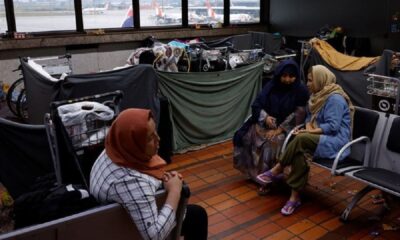
 Latest News5 days ago
Latest News5 days agoOver 12,000 Afghans entered Brazil with humanitarian visas in last three years: UNHCR
-

 Business4 days ago
Business4 days agoTrump warns BRICS nations against replacing US dollar
-
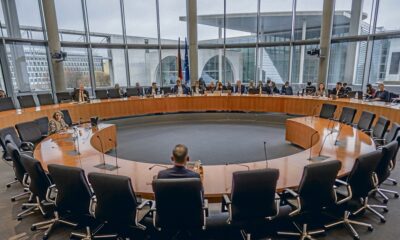
 Latest News5 days ago
Latest News5 days agoFormer German FM blames lack of US coordination for chaotic withdrawal from Afghanistan
-

 World5 days ago
World5 days agoSyria rebels say they reached Aleppo city in surprise sweep
-
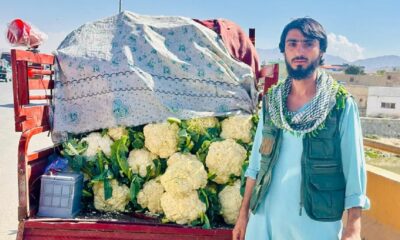
 Latest News4 days ago
Latest News4 days agoMost families borrow money to buy food in Afghanistan: WFP
-

 Sport4 days ago
Sport4 days agoAfghanistan announce squads for white-ball tour of Zimbabwe
-
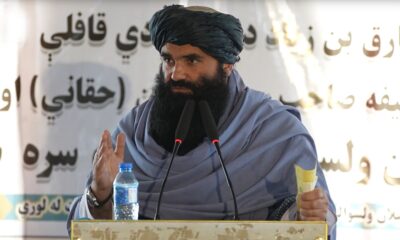
 Latest News5 days ago
Latest News5 days agoActing interior minister calls Afghans ‘united people’
-
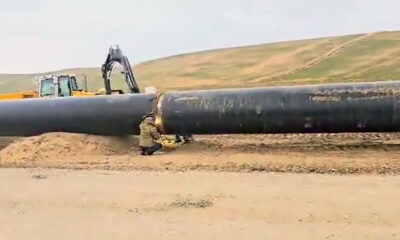
 Business3 days ago
Business3 days agoWork on TAPI project finally kicks off in Afghanistan


